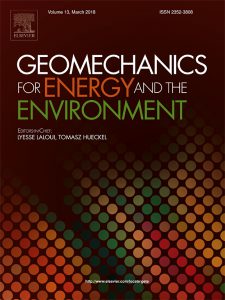2. Multiphysical Constitutive Framework for Soils and Shales
Lecturer
Lyesse Laloui
Multiphysical processes in geomaterials are found in several energy related geoengineering areas, such as conventional and unconventional energy resources, underground nuclear waste storage, and CO2 geological sequestration. These applications require the capacity to understand and predict the behaviour of the involved geomaterials, where several physical phenomena involving mechanics, hydraulics, and temperature are expected to play a key role.
This course introduces the modern concepts for the multiphysical characterisation of multiphase geomaterials, accounting for the impact of partially water saturated and non-isothermal conditions. A geomechanical approach to reproduce and predict the behaviour of soils and shales through advanced constitutive modelling is presented.
The main topics covered by the course are:
- Review of the effective stress concept in porous geomaterials in both saturated and unsaturated conditions.
- Basic features of unsaturated geomaterials and stress variables.
- Effects of suction on the mechanical behaviour of geomaterials.
- Coupling between the water retention and the mechanical behaviour for the development of an elasto-plastic framework.
- Basic features of the behaviour of geomaterials in non-isothermal conditions.
- Effects of temperature on the mechanical behaviour of geomaterials: thermo-elastic and thermo-plastic mechanisms.
- Stress-strain framework in non-isothermal conditions.
- Coupling between non-isothermal and partially saturated conditions: unsaturated thermo-plasticity.



